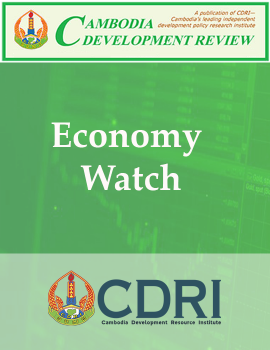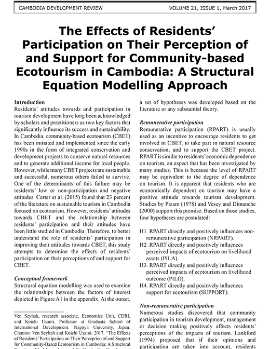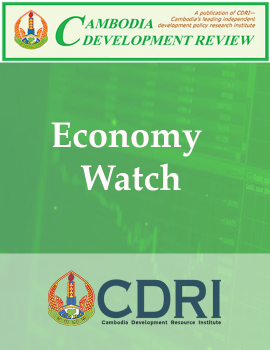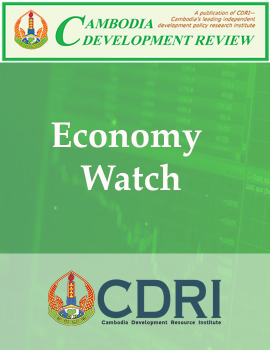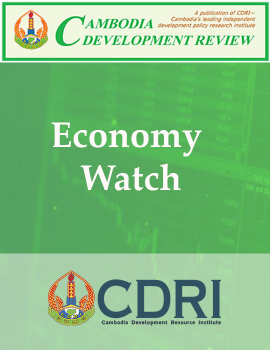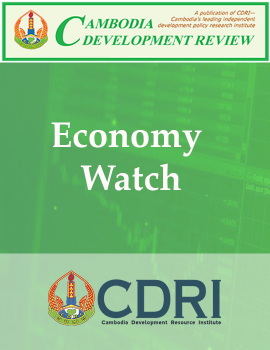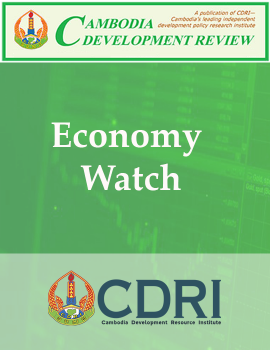Centre for Development Economics and Trade
The Centre for Development Economics and Trade (CDET) conducts applied and policy researches focusing on Cambodia’s economy, trade and regional cooperation. We monitor Cambodia’s economic management and performance; provide evidence-based economic policy analysis; and engage in local and regional dialogues to inform policymaking. Our research has a strong link to national policies, particularly the Rectangular Strategy (Phase IV) and the National Strategic Development Plan (2019-23). Specifically, we contribute to two pillars of the NSDP: Economic Diversification, Private Sector and Market Development; and Sustainable and Inclusive Development. Our delivery mechanism includes policy and academic research, capacity building, knowledge dissemination and sharing, and policy influence and outreach. Our research agenda falls within five broad development areas: economic development, focusing on sustainability and inclusion; trade and regional cooperation; private sector development, focusing on small and medium enterprises; employment and employability, with a cross-cutting theme on gender and youth; and data for research and development (D4RD). We have extensive experience on regional cooperation and research projects, working with think tanks and research institutes in ASEAN and the Mekong region. The Greater Mekong Subregion Research Network (GMS-Net) is an example of such collaboration.
There is no data list!
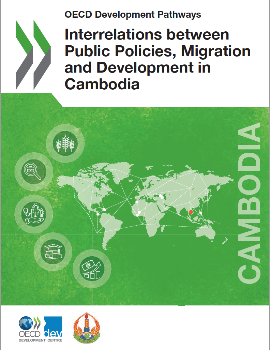
Interrelations between Public Policies, Migration and Development in Cambodia
Emigration is a significant and growing phenomenon for Cambodia. Between 2000 and 2015, the stock of Cambodians abroad increased by about 160%, from around half a million to 1.2 million people. Today, about 10% of Cambodians over the age of 15 plan to emigrate. Despite the country’s steady economic growth, labour market demand has not been sufficient to meet the increase in the working population,...
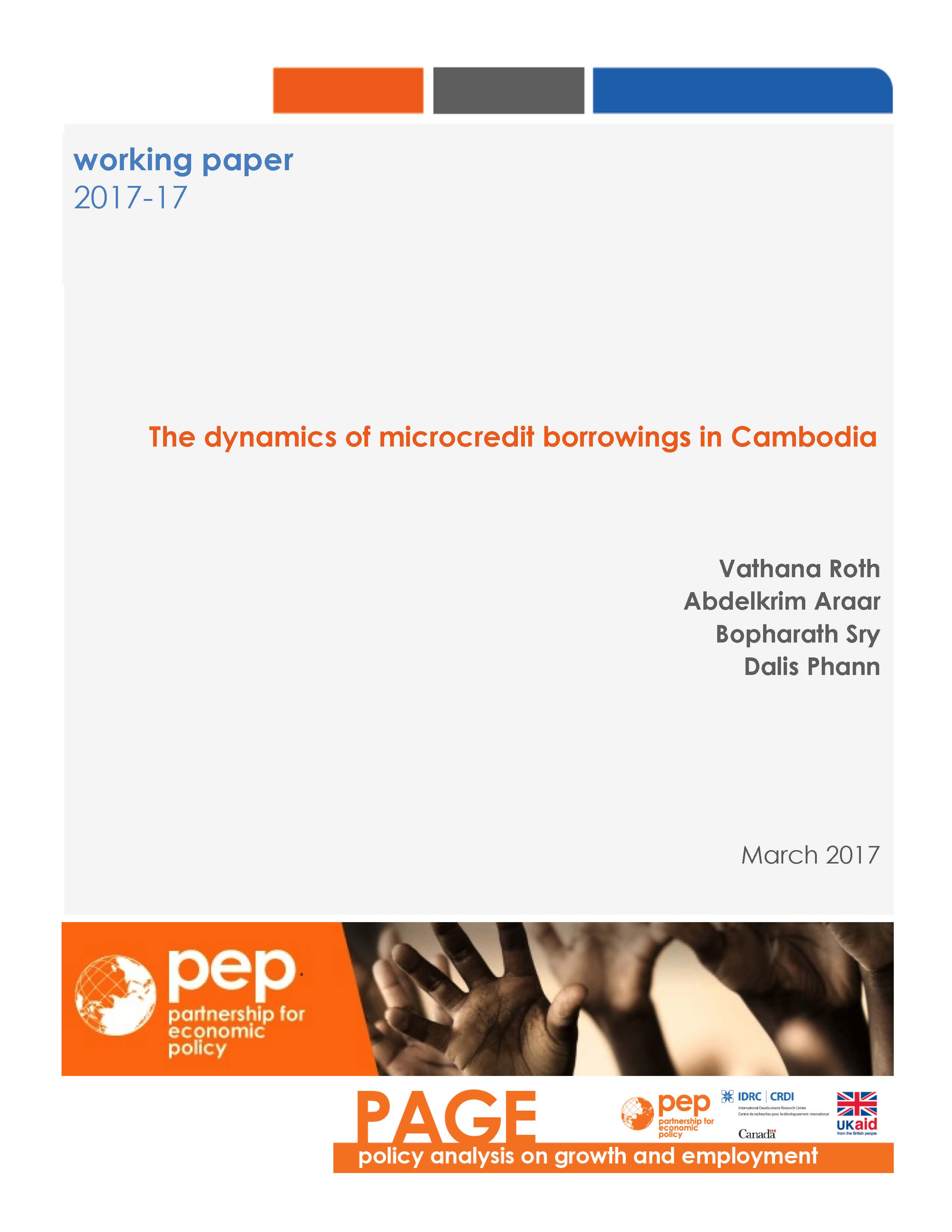
The Dynamics of Microcredit Borrowings in Cambodia
This study uses panel data collected in 11 villages in 2011-14 to investigate the impact of microcredit on paddy harvest and income, input costs for paddy production, and self-employment income. The panel data make it possible to implement difference-in-differences and triple-differences estimators. The results show that credit participants have a 26.1 percent increase in paddy income, a 68.9...

Economic Effects of Migration on the Left-Behind in Cambodia
Using propensity score matching, this study examines the effects of migration on various indicators of household wellbeing in Cambodia. The results indicate that migration would reduce poverty headcount rate by 3–7 percentage points and decrease the depth of poverty. Migration is also found to reduce by 5–10 percent the hours worked by members left-behind. The impact of migration on labour partici...

